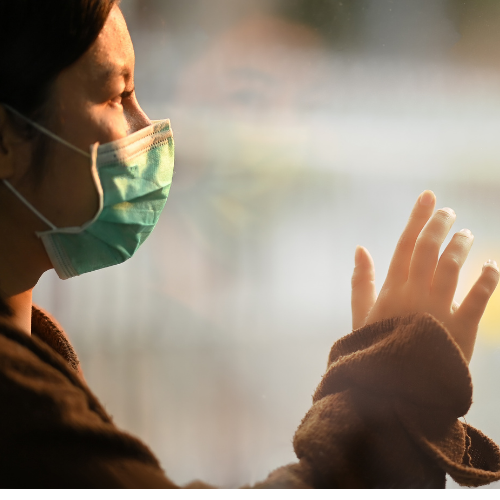
Bereavement is the process of experiencing grief due to some kind of personal loss. The covid-19 pandemic has taken millions of lives and pushed their families into bereavement. Bereavement can be described as an experience of sharp emotional pain, feelings of anger and injustice at losing loved ones to a deadly disease, experiencing solitude and feelings of powerlessness, sadness and despair. People also report a general sense of confusion, inability to concentrate, remember things and report experiencing high levels of stress and anxiety. This process of bereavement also includes physical symptoms such as tightness in the chest, inability to sleep and a loss of appetite.
Death during the panda make has several associated problems, such as loved ones not being able to visit one last time before death or attend a loved one’s funeral. This leads to a lack of closure and a lack of reassurance that their loved ones were treated well and with dignity before death. The process of bereavement is thus intertwined with the tremendous void left by the lack of a sense of justice, answers and last conversations.
Even more difficult is the death of the young in the second wave of the Coronavirus. In the beginning the elderly and people with comorbidities were vulnerable, however with the second wave and new variants of the coronavirus, more and more young people are falling prey to the illness. Losing one’s children or grandchildren have taken a massive toll on the elderly population everywhere and more and more reports of the elderly falling ill out of stress are coming in. Bereavement also includes grieving losses that are not death, such as grieving the loss of one’s routine, grieving the loss of work and livelihood, the loss of friends and grieving the constant uncertainty that one has to live with in the current times.
In India, the process of bereavement is collective: one typically grieves with family, relatives, neighbors and friends who come in with support and food and conversations. However due to social isolation and distancing, the grieving process has been put on hold. Collective grieving is not possible in India anymore and this has led to a feeling of lack of support and further jeopardizes the mental health of those who have lost a loved one.
So what can be done to make this process of bereavement easier? The ones among us that have lost someone can begin by allowing ourselves to talk about how we are feeling to trusted friends and family members. We can also try to recover a daily routine. Moreover, when somebody is talking to us about their grief and loss we can try to be compassionate and listen and provide support. It is important that while grieving or undergoing bereavement we do not use unhealthy coping mechanisms such as using and misusing substances. This pandemic has cost everyone personally and the best way to move forward and help those who are undergoing bereavement is through community support consisting of compassionate listening and offering support however we can.







